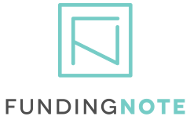When looking for growth capital for your startup or established business, you often need to be more creative these days. While VC funding is great and bank loans are, well, mainstream, those options are often challenging to access.
There are other options, though. What are they and how can a business access them? Min Fang, the Co-founder of Harper Partners, shares the ins-and-outs of alternative business funding methods in our First Edition of Expert Q&A.
Mr. Fang, please kindly introduce yourself to our readers.
I am the co-founder of Harper Partners. We are a specialty finance company that provides growth capital to companies in advertising, digital media, technology and various other industries. Previously, I was a private equity investor and investment banker. I am currently enjoying sunny Los Angeles, where Harper is based, after spending the last few years on the East Coast.
Bank loans are so last season. VC funding is in a decline. Today, it’s time for creative funding and financing to shine. In brief, what options are there right now available in the market?
That’s a tough question to answer in brief as there are more options available today for small businesses than there have ever been. With the increase in options has come an unfortunate lack of transparency, which makes finding the right fit for a business more challenging.

For short-term working capital needs, B2C companies have merchant cash advances (“MCAs”) that take a split of your daily credit card sales. MCAs are a fast, but very expensive option. B2B companies should consider invoice factoring to accelerate payments stuck in accounts receivable. For larger companies, asset-based lines of credit, secured by accounts receivable and inventory, become a viable option as well.
If you need financing that’s longer term, check out term loans offered by non-bank lenders. Several providers, like Bond Street and Funding Circle, offer reasonable pricing and higher approval rates than most banks. However, you will have to be in business for over a year, annual revenue of at least $150,000, and a personal FICO score over 600. If your business is buying equipment, look into equipment financing. This financial product generally has higher approval rates and more reasonable pricing than other options because it’s secured by equipment. I actually created a comprehensive small business loans guide that dives into more detail about each product.
On the equity side, crowdfunding has grown in popularity since the JOBS Act was passed in 2012. It’s not a viable option for every company because it’s relatively slow and can be cumbersome, but some companies have used it successfully. Angel investors, traditionally wealthy individuals investing in very early stage companies, are becoming more institutionalized. Angel syndicates like AngelList (a combination of crowdfunding and traditional angel investing), Tech Coast Angels, and Golden Seeds can pool angel capital together to invest decent sized checks. And of course, family and friends is a tried and true method of financing a company.
Many consumer product businesses have successfully raised money on websites like Indiegogo and Kickstarter. These are also crowdfunding platforms, but rather than take equity, participants are promised products depending on their donation amount. This is a great option to get initial funding to launch a product or even to just test demand. Companies like Oculus (acquired by Facebook for $2 billion) and Pebble got their start on these sites.


photo credit: Jonas Birme / Flickr
We see a rising trend in equity crowdfunding. What do you think of it?
The idea of equity crowdfunding is a noble one – let anyone invest in American small businesses. Companies have successfully raised money through crowdfunding. But in the U.S. it had not scaled the way supporters predicted back in 2012 when the JOBS Act passed. The Act only allowed for accredited investors to invest in private companies. It wasn’t until May 16 of this year when the SEC finalized regulations allowing unaccredited investors, i.e. “regular” people, to invest in private companies.
The effect since the regulations were finalized has been muted – less than 50 companies have been listed on equity crowdfunding sites since May 16th, and the amount they’ve raised has been fairly disappointing. If you’re a company with a passionate following for your product, equity crowdfunding can be effective as there’s a certain novelty that comes with owning a part of your favorite business. But, I think most individual investors don’t have the time or expertise to diligence early stage private investments. If crowdfunding is going to scale, pooled funds that manage and invest many individuals’ capital together have to be widely adopted, similar to mutual funds today. AngelList is a platform that is trying to do this with their AngelList funds.
Your company offers invoice factoring. Can you explain about it, and how it can help entrepreneurs and business owners?
Thanks Ivan, happy to. Invoice factoring is an established form of financing that converts unpaid invoices into cash. It solves the dilemma caused by net 30 / 60 / 90 payment terms that can really slow a company down. If a business sells to other businesses or the government, it’s a viable candidate for invoice factoring.
The benefits for entrepreneurs and business owners is that factoring is financing that relies more on the creditworthiness of your clients. Ultimately, it’s your clients paying off the invoices, so the financing is approved and then priced based on their likelihood to pay. As such, it’s an excellent form of financing if you’re a small business selling to more established companies. The effective APR (Annual Percentage Rate) you get with factoring will be much less than alternatives, like merchant cash advances. The approval rate for factoring is also much higher than traditional bank financing because, again, the underwriting is based on your clients.
Many industries use invoice factoring to enhance cash flow and fund working capital. It’s popular in industries such as trucking, apparel, and staffing. We recognize the need in those industries and have clients with those businesses.
However, we also saw a need in newer industries like digital media, advertising, and technology. Entrepreneurs in these industries generally don’t know about invoice factoring, and many think equity is the only financing source they can turn to. In fact, factoring is much cheaper and a far easier process than raising equity funding. And when factoring is used in combination with equity funding, it can really help a startup fuel growth.

You position your company as the partner to startups and small businesses. Can you explain how they can access funding from your company?
Sure. After reaching out to us, business owners will speak to an experienced member of our team who will get a quick overview of their business and funding needs. There’s a very simple application process where we can approve within 48 hours. Same day wiring of funds is available after that. We provide factoring lines of credit up to $5 million, so we’re able to scale with our clients. Interested companies can learn more by reaching out via our Get Started page, calling us anytime at (323) 285-1462, or emailing info@joinharper.com.
In addition to funding, we pride ourselves on being a long term partner, offering valuable services to our clients including pro bono fundraising guidance, financial consulting, and business development.
Lastly, please share your advice with our readers on how to secure the right funding for their business.
For business owners, educating yourself about the options available is important. Unfortunately, that takes time and resources away from running their business. That’s why sites like Funding Note can be such valuable tools.
Research is important because having a general sense of what market terms are is critical. If something sounds too good to be true, it probably is. For instance, lenders that brag about immediate funding are not always the best option and will often tag you with expensive rates and onerous terms.
A few questions that will determine what type of financing best fits your business:
- Is your business B2B, B2C, or some combination?
- How long do you need the financing for? Short term options are usually for less than a year, long term for longer.
- Do you just need funding or would you prefer to have a long-term partner to speak to regarding financial or business related matters? Some finance companies are completely arms-length, others are more like partners / advisors.
- Are you using the funds to buy assets that can be collateralized, like equipment or real estate? If so, you may be able to get much lower rates than traditional cash flow lending.
Besides Funding Note, a few other helpful resources include the Small Business Administration’s Resource Guide, Harper’s Small Business Resources, and finding your local Small Business Development Center. In particular, your local Small Business Development Center will have consultants you can speak to who will provide impartial funding advice.



